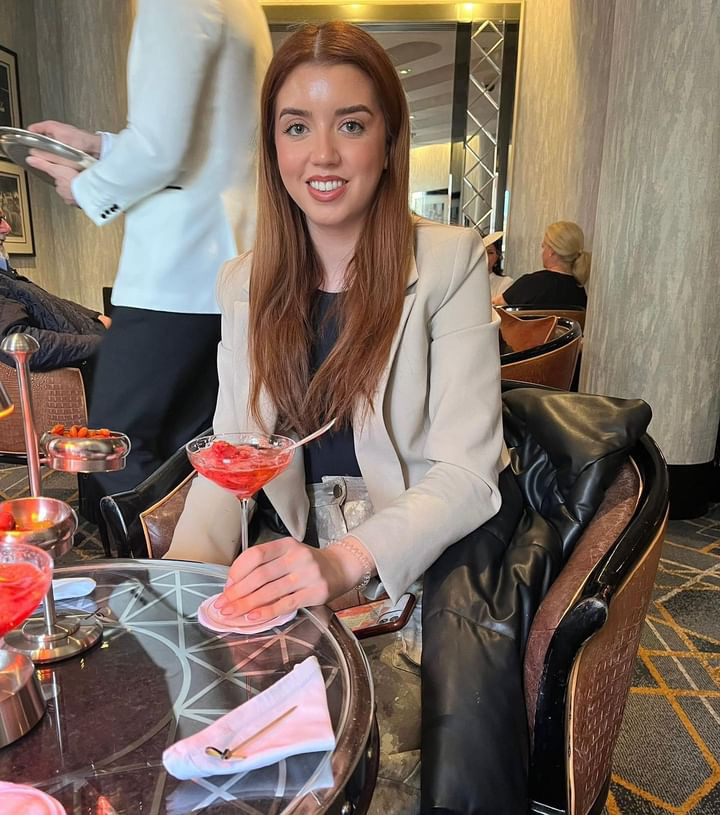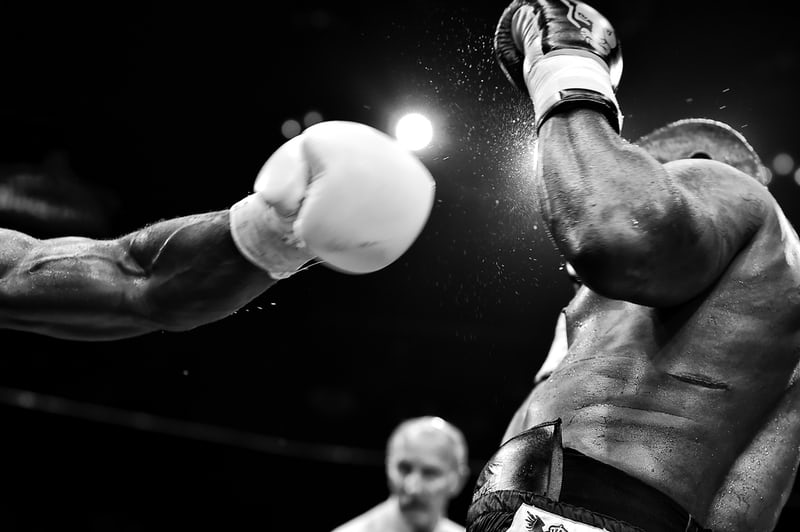Lara Berridge had just finished her A Levels when she was spiked on a night out in Sheffield. It was 6pm on a Monday night in June, not a time particularly associated with risk, but as soon Lara finished her second drink, she felt drowsy. “I could tell that something wasn’t right – I felt so strange,” she says. “It felt like I couldn’t hold myself up. I kept falling asleep but I’d only had two Pornstar Martinis and nothing alcoholic before I went out.”
“I couldn’t get outside when it was time for us to leave for another bar. My friend tried to help get me out, but I was deadweight. A boy tried to help carry me out but noticed that my nose was bleeding and that I’d been vomiting. He could tell that something wasn’t right – it wasn’t standard drunkenness. My friends called an ambulance but when it arrived, the paramedics accused me of being ‘on something’.”
That was the last thing Lara remembered before being taken to hospital. She had to spend the entire night alone due to COVID restrictions. Staff took her phone and refused to give it back until she was discharged.
“I woke up with stickers covering my entire body – I was so confused,” says Lara, 2I. “I immediately started asking questions. The doctors told me that ‘I’d been a bit silly, and that I’d had a silly night’. I asked to be drug tested, but they said because I was unresponsive when I came in, I couldn’t consent, meaning they couldn’t test me. They were really rude to me. They wouldn’t let my dad in to see me, so he sat in the car park all night until I came out.
“Afterwards, my mum found it hard when I eventually started going out again. She had to get over that fear. It must be hard to get a call as a parent, saying your child is in hospital.”

At the time Lara claims she was spiked, in 2021, police released data revealing 1,466 reports of spiking incidents that year. By 2023, that figure shot up to 6,732, with 957 incidents relating to needle injections.
Specialists believe spiking can cause residual trauma as victims may develop anxiety about going out again, which potentially leads to developing trust issues. Those who sexually assaulted after being spiked can develop depression, post-traumatic stress, and suicidal thoughts.
Several campaigns have been launched across the country to raise awareness, educate on preventative measures, and pressure the government into refining spiking laws.
In 2021, students at the University of Sheffield created the campaign ‘Claim back West Street’ which sought funding and support from the local council to improve safety conditions on a popular street for student nightlife.
The campaign was backed by Sheffield Heely MP, Louise Haigh, who told the students: “Repetition is really important in making sure we are amplifying these messages to make a change in the city.”
Spiking has always been difficult to monitor and prosecute due to old-fashioned laws, and the unreliable nature of testing, as tests carried out in hospitals are not admissible as evidence in court.
Callum* was spiked in Sheffield, in March this year, during a night out with his girlfriend, Natasha*. Like Lara, Callum, and Natasha, both 20, hadn’t drunk anything before visiting the first bar.
“We went to the bar and Callum bought us a drink each,” says Natasha. “I put my drink on the side while I was talking to my friends, but ended up giving my drink to Callum because I didn’t want to drink it anymore.
“I noticed that a strange man in the corner of the room was staring at me. It made me feel extremely uncomfortable. We left that bar to go to another, but by the time we entered, I noticed that Callum wasn’t there at all.”

Callum only has vague recollections of the evening. “I remember stumbling around – I think I lost my phone,” he says.
Natasha says: “He was slurring his words and repeating everything he was saying. I thought it was time to take him home.”
The couple bought some food from a local takeaway and then got in a taxi and went home.
“When I was getting ready for bed, Callum went downstairs. An hour went by and I went downstairs and found him asleep on the sofa, chips in hand. I tried to pick him up but he was a deadweight. When I did manage to lift him, I dropped Callum and he fell on the floor, where he started to vomit on himself. It was reddish brown, but we had been drinking vodka and lemonade.
“I was so scared for him. I started panicking and rang another friend to help me. He carried Callum to the bathroom, where he vomited until 6 am. He was there for five hours.”
Callum hasn’t been on a big night out to a club since. “It’s completely put me off,” he says. “When I do go to the pub, I keep my drink in my hand.”
In a 2022 report by the Home Affairs Committee, a survey of 1,895 victims and 1,413 witnesses, reported the highest number of spiking incidents in the East Midlands, North West, and South West. The report highlighted needle-spiking hotspots in Nottinghamshire, Merseyside, Northumbria, Avon and Somerset, and Sussex.
Survey respondents reported more mental health than physical health impacts, with 835 victims reporting both, and a low proportion saying the incident had no impact.
Last spring, 21-year-old Eve*, who studied at Nottingham Trent University, went to a rave. “We were rushing to go out, so I only made one drink before I left the house, and wasn’t able to finish it,” she says.
“When we got there, I got one double vodka lime soda. In the dance space, I realised a boy was weirdly close to me. I felt his erection pressed up against me and tried to move out of the way as much as possible, but it was busy. Twenty minutes later, me and my friends went into a toilet cubicle together and I started to feel weird.
“I knew I hadn’t drunk a lot. I’d taken recreational drugs before and knew how they felt. I hadn’t taken any that day, but it felt as though I had. I remember feeling so confused and I knew something wasn’t right.”
Eve decided to go home and went outside for a taxi to take her home to her university accommodation.
“I was out of it, but I knew what was going on – it was so weird,” she says. “My brain was there but my body wasn’t quite matching up: it wasn’t correlating. My eyes were rolling back in the cab. I couldn’t control my body properly. I called my flatmate telling her how scared I was.

“When I got home, I couldn’t open the door – it’s like I’d lost my motor skills. My flatmate had to let me in, she took me to my room and I began balling my eyes out in relief to be home. I couldn’t see properly and was unsure of what was going on. Eventually, my boyfriend came to look after me.
“I was crying and moaning because I was so scared. It was a full-blown panic attack. In the morning, I felt awful – like I had a massive hangover. I was so embarrassed about why I had acted the way I had. I didn’t go to the hospital because I was scared.
“Because you have no proof or evidence of it being 100 per cent true, you don’t really want to tell people about it. They would just question it and assume you were drunk. With hindsight, I do wish I’d just gone to hospital. I’ll always question what happened and have that doubt.
“Venues need to have more preventative measures, such as covers. It would make people feel a lot safer. A lot of girls put their hands over their cups because of the lack of protection. In Nottingham, I was never offered anything.”
Preventative measures are offered in some bars. Paper and material covers can be placed onto open cups for free, companies such as NightCap offer practical products such as a scrunchie that turns into a cover. Some bars also offer drink spiking test kits free for anyone to use.
In 2021, there was an unprecedented increase in Nottinghamshire of reports of women being spiked with needles.
Freedom of information data revealed between 2018-2023, Greater Manchester police received 1124 reports of drink spiking, with only three charges. Nottinghamshire police received 439 reports but made no charges.

A 2021 e-petition that urged for tighter venue security and to make it a ‘legal requirement for nightclubs to thoroughly search guests on entry’, gained 175,000 signatures and was debated in Parliament.
The government response said: “The law already allows licensing authorities to impose conditions such as searches. Decisions on this should be made locally, taking account of circumstances, and there are no plans to change the law.”
Eve says: “It’s terrifying. You can’t get away from spiking – it’s happening everywhere. It’s almost impossible to feel safe anymore on a night out.”
*Callum is a false name
*Natasha is a false name
*Eve is a false name



